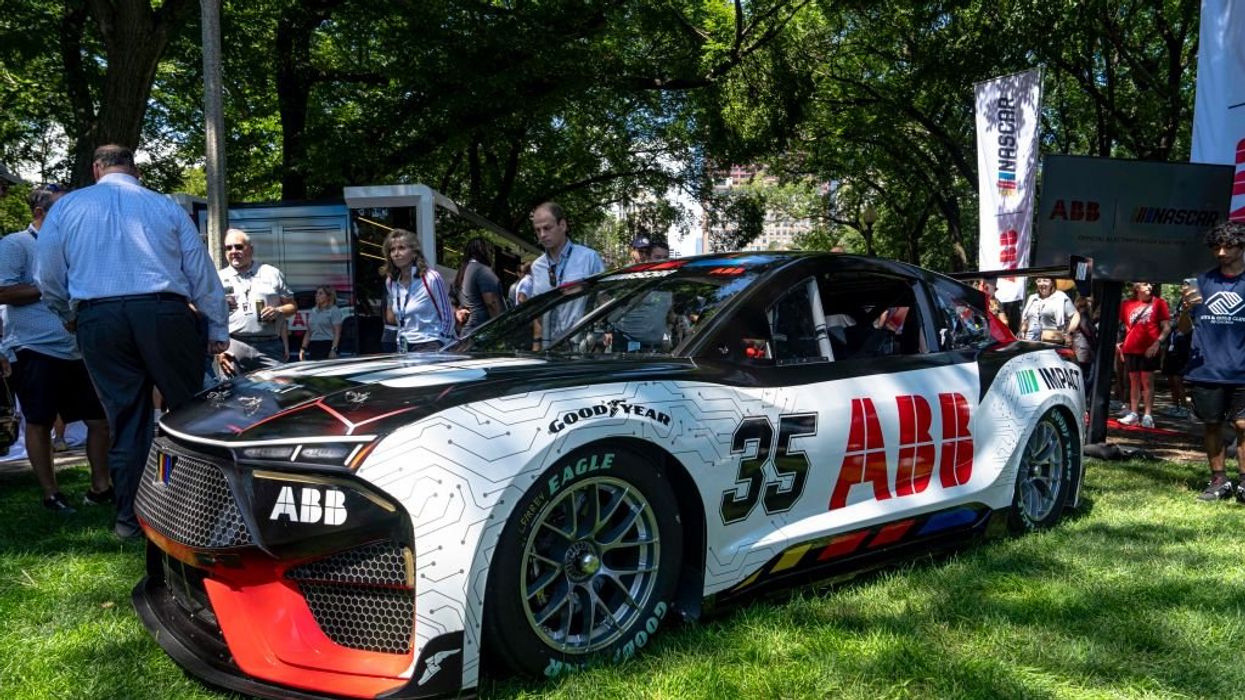
Photo by Ben Hsu/Icon Sportswire via Getty Images

The racing league said combustion engines are still its 'core product.'
NASCAR revealed an electric vehicle prototype at a Chicago event and spoke about its plans to "decarbonize" operations.
The racing organization showed off its new EV at the Chicago Street Race and published materials riddled with activist jargon regarding sustainability goals that have been heard ad nauseum from large corporations.
Touting a mission to strengthen its communities by advancing sustainability, NASCAR partnered with Swedish-Swiss electrical equipment manufacturer ABB.
'We actually have the opportunity to evaluate not just the battery electric part, but then also the crossover vehicle part.'
The beloved American stock car league's commitments to electrification echo those of the most basic plans put forth by limitless jurisdictions and manufacturers, stating that it would decarbonize its facilities and reach a net-zero carbon footprint in its core operations by 2035.
Simply put, while NASCAR said it will still use combustion engines in its cars, it would like to be able to tell people that its nonracing operations are sustainable.
"The combustion engine is our core product, and that will remain so for the coming future," Riley Nelson, NASCAR's head of sustainability, told CNN.
NASCAR hopes to have 100% renewable electricity at its racetracks and facilities by 2028 and also to have on-site electric vehicle charging stations. The partnership with ABB will supply the infrastructure needed at operational sites.
The EV itself, the ABB NASCAR EV Prototype, debuted in 2022 and was an attempt to make race cars look more similar to cars on the street, NASCAR said in a press release.
The car has three electric motors (one front, two rear) and regenerative braking. The braking is when an electric vehicle slows its speed to revert surplus energy back to the battery to allow for a longer driving time. This can be an irritating feature of a commercial electric vehicle, as certain driving modes will automatically put the brakes on the EV when it is at very low speeds, such as in a car wash.
"The pilot programs that we've implemented within operations of our core business, and then also the events, has been going really well," NASCAR's Nelson continued. She added the company is "still in the early stages of this journey."
NASCAR’s senior vice president of racing development, John Probst, told CNN that some fans will reject the very idea of electric racing and said that the gas cars are in no immediate danger of extinction. But like Nelson, Probst did not say they will never be eliminated.
The company reportedly has plans to change its fuel to become more sustainable in the future as well, despite currently using 85% gasoline and 15% ethanol.
"We actually have the opportunity to evaluate not just the battery electric part, but then also the crossover vehicle part," Probst said. "So it may be that one or both of these will become something in the future for us."
Like Blaze News? Bypass the censors, sign up for our newsletters, and get stories like this direct to your inbox. Sign up here!
Andrew Chapados